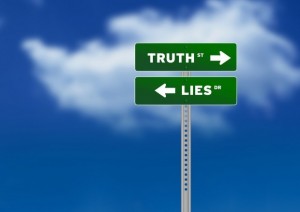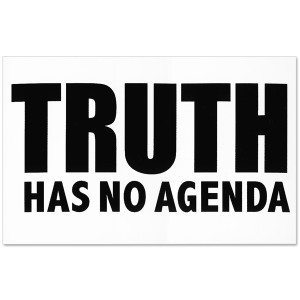 I love thinking about the philosophy of history. I think I’ve mentioned here already that I’ve worked on a way (“The 9 Cs”)* to introduce the philosophy of history to undergraduates and those new to the subject. I believe that understanding one’s philosophy of history, however simply, is important enough that I begin every course talking about the topic. I normally spend two sessions on the topic in a survey course, with the first day given over to the “What is history?” question and the second to ‘historical thinking’.
I love thinking about the philosophy of history. I think I’ve mentioned here already that I’ve worked on a way (“The 9 Cs”)* to introduce the philosophy of history to undergraduates and those new to the subject. I believe that understanding one’s philosophy of history, however simply, is important enough that I begin every course talking about the topic. I normally spend two sessions on the topic in a survey course, with the first day given over to the “What is history?” question and the second to ‘historical thinking’.
Not only do I think this is important, but I also think—done properly—it’s exciting. It injects a level of productive uncertainty into the proceedings. Since many students think history is cut and dried (i.e. it is what it is), this interjection shakes things up. Given my proclivities and desires, I’m surprised that in those sessions I rarely if ever address, head on, the problem of truth in history.
My prompt to think about the notion of truth in history came from the British historian Keith Jenkins. I’m reading his 1991 book, Re-thinking History
. Jenkins has been called a “postmodern” philosopher of history. Given that, his perspective is clear: there is no TRUTH in history, only perspective, movement, and many positions of power and interpretation. Truth exists on a spectrum from Jenkins and like-minded historians. He covers ‘truth’ on pages 28-32 in the text (of my London/NY Routledge paperback edition).
That said, Jenkins allows for a small common core of truths related to chronology and chronicle. Here there is hard objectivity, and many ‘facts’ about which large numbers of historians agree. I discuss this in my “9 Cs” document/lecture, but I don’t frame it as a large area of history about which many historians agree. Anyway, Jenkins covers this in book’s section titled “On Facts and Interpretation” (pp. 32-36, right after the section on truth).
After chronicle, Jenkins delves into the small ‘t’ truths of interpretation. As any advanced undergraduate and graduate student in history will tell you, those truths are almost entirely subjective—dependent on the perspective and priorities of the storyteller/historian. These truths exist on a spectrum. They resonate in the reader. The historian attempts to interpret in a way that creates resonances between the past and present. It seems clear from Jenkins that if the historian isn’t trying to create resonances, their story won’t be read. The readings of your narrative will be minimalist and incomplete. Your attempt to create an “axiomatic fiction” of historical knowledge will be lost on the reader (p. 40).How do you discuss ‘truth’ and ‘lies’ in history? How do your students discuss ‘truth’? How do you bridge the gaps, if they exist? Other than Jenkins’ truths of chronicle and interpretation, what other truths exist in the realm of historical knowledge? – TL
—————————————————————
*I recently updated that with another ‘C’, making it 10 total, with this addition. And I’m contemplating another addition—i.e. certainty—based on this post.


3 Thoughts on this Post
S-USIH Comment Policy
We ask that those who participate in the discussions generated in the Comments section do so with the same decorum as they would in any other academic setting or context. Since the USIH bloggers write under our real names, we would prefer that our commenters also identify themselves by their real name. As our primary goal is to stimulate and engage in fruitful and productive discussion, ad hominem attacks (personal or professional), unnecessary insults, and/or mean-spiritedness have no place in the USIH Blog’s Comments section. Therefore, we reserve the right to remove any comments that contain any of the above and/or are not intended to further the discussion of the topic of the post. We welcome suggestions for corrections to any of our posts. As the official blog of the Society of US Intellectual History, we hope to foster a diverse community of scholars and readers who engage with one another in discussions of US intellectual history, broadly understood.
In the ninth endnote of the same chapter, Jenkins (1991) elucidated his perspective on the relationship between “true to the facts” and chronicle as well as interpretation: “As [Hayden] White has argued, in the unprocessed record of the past and in the chronicle of events which the historian extracts from the record, the facts exist only as a congeries of contiguously related fragments which then need to be put together through some enabling matrix.” Jenkins referenced White quite often. I also found your Cs post most helpful.
Cory: Thanks! I’ve not read much Hayden White, though it seems clear to me that Jenkins has (as you noted). That said, my own focus on the importance of storytelling to the work of turning history from chronicle into meaningful historical knowledge seems to put me either in or partly in the White camp.
What swings me in that direction is the total subjectivity involved in selection and emphasis. Our extensive footnotes hide an ambiguous process behind a social science veneer. – TL
turning history from chronicle into meaningful historical knowledge
Thanks for the clarification.
Our extensive footnotes hide an ambiguous process behind a social science veneer
Duly noted.